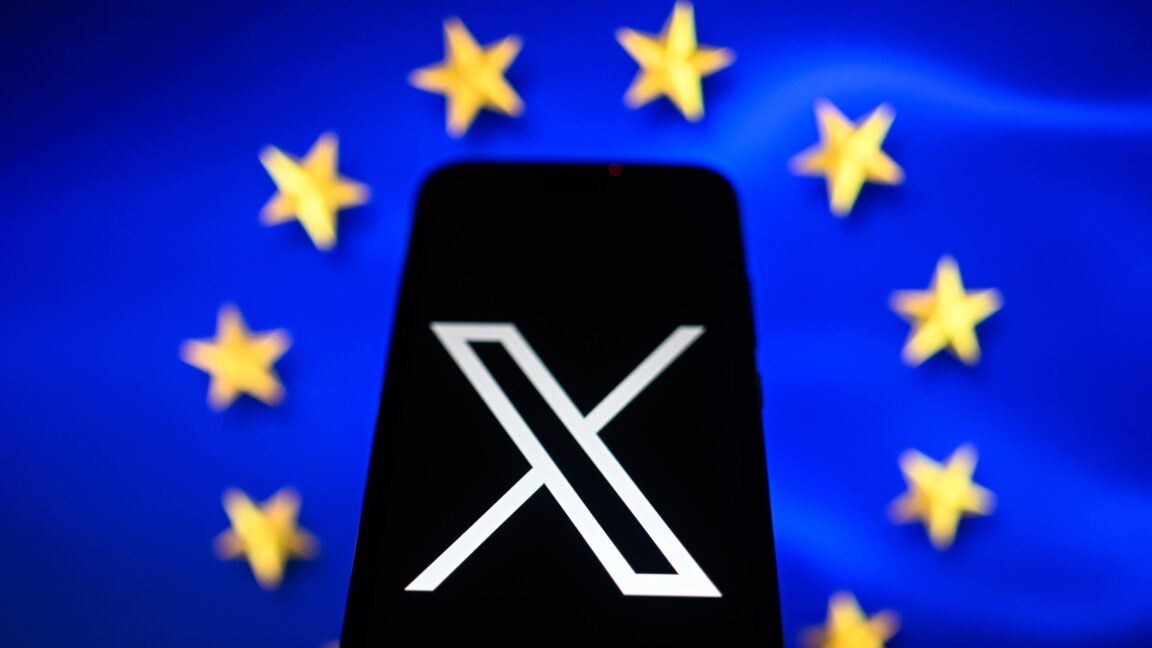cross-posted from: https://lemmy.world/post/27791056
European Union regulators are preparing major penalties against X, including a fine that could exceed $1 billion, according to a New York Times report yesterday.
The European Commission determined last year that Elon Musk’s social network violated the Digital Services Act. Regulators are now in the process of determining what punishment to impose.
“The penalties are set to include a fine and demands for product changes,” the NYT report said, attributing the information to “four people with knowledge of the plans.” The penalty is expected to be issued this summer and would be the first one under the new EU law.
“European authorities have been weighing how large a fine to issue X as they consider the risks of further antagonizing [President] Trump amid wider trans-Atlantic disputes over trade, tariffs and the war in Ukraine,” the NYT report said. “The fine could surpass $1 billion, one person said, as regulators seek to make an example of X to deter other companies from violating the law, the Digital Services Act.”
That’s outrageous.
I demand they make it $100,000,000,000.In terms of proportion, that’s like you or I being fined a couple of quid.
No they didn’t it’s a ~~bullshit trying ~~
I’ll believe it when I see it
Do it. The US won’t even tell him ‘no’ … someone needs to check this nazi asshat.
Anybody else see the X emblem as the Hammerskins neo-nazi symbol in Pink Floyd’s “The Wall”?
I don’t like the law to make an example out of anyone, I would rather see the law being effective and equally applied to all.
Also, these kind of regulations are precisely one of the things Trump and his billionaire bosses are trying to get rid of.
I find the headline a bit click-bait-y and intentionally controversial. I think nowhere did the EU said they wanted to make an example out of X. The NYT report said it. The EU just wants to apply the digital act - as they should
Yeah, any time you punish somebody, you are making an example. So not like they made a law just to apply it to X.
I’d rank my preference as:
(1) law applies equally to all.
(2) law does not apply equally to all, but at least they’re honest about it.
(3) law does not apply equally to all, but they pretend it does.So I guess, depending on if one previously thought (1) or (3) to be true, this is either a deterioration or an improvement.
How is this is an example of (2), and not (1)? Is the law being applied inequally, or is it just that X is breakin it real bad?
the law being applied inequally or is it just that X is breakin it real bad?
Those aren’t mutually exclusive. Both could be happening at the same time.
But I didn’t even present them as mutually exclusive. Breaking the law is pretty much granted.
How is the law being applied inequally?
How is the law being applied inequally?
The following:
“The fine could surpass $1 billion, one person said, as regulators seek to make an example of X to deter other companies from violating the law, the Digital Services Act.”
The motivation of the punishment is ulterior to the crime.
As the goal seems to be show of force, and not simply application of the law, it raises the question: why this company? And it creates a non-coded shadow system of (illegal or not) behaviour that needs to be made an example of, and (illegal or not) behaviour that does not need to be made an example of.
They can scream and whine all they can, they won’t affect internal European regulations.







